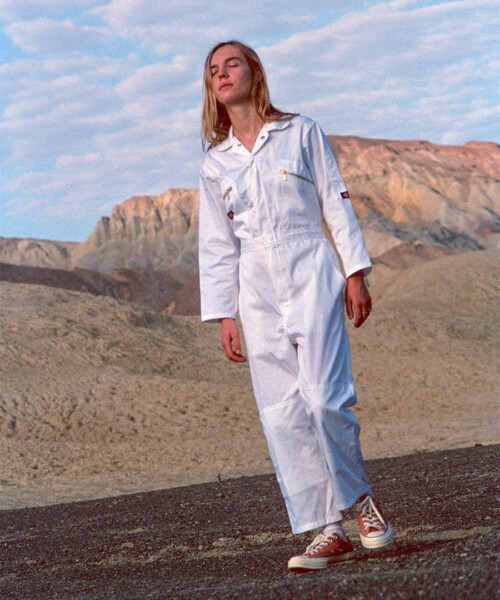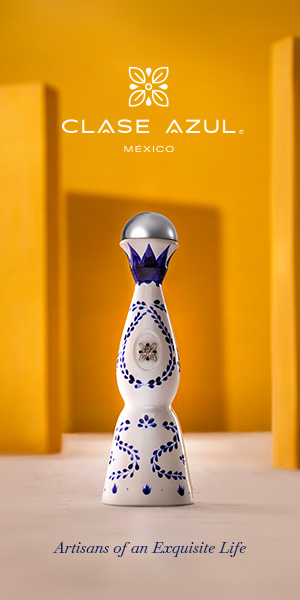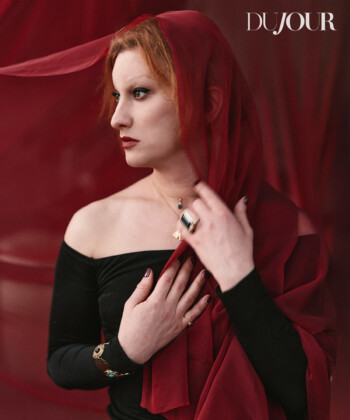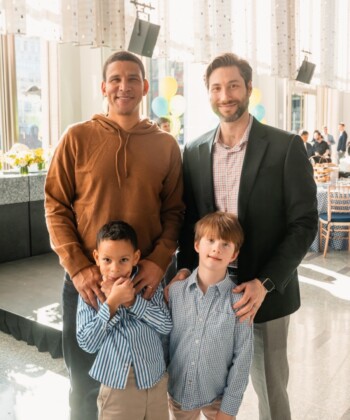The soda-drinking artist sitting in front of me is thoughtful with her words both on and off the stage. Contrasting her carefulness is a charm in her ability to be unabashedly candid. Which is why when speaking with Amber Bain, known professionally as The Japanese House, the conversation casually dances from her music to relationships to her age to mental health to mortality. Though Bain’s thoughts seemingly spill out of her with ease, the young British singer-songwriter tells me this skill is a work in progress. “I’m learning to feel things,” she admits. “I express myself a lot through music but I’m not good at really feeling shit that happens to me.” Bain adds that while working on her upcoming debut album, Good at Falling (slated for a March release), she learned how to open herself up to experiencing pain. “We spend so much time trying to numb our pain down and not feel anything that we just begin to feel nothing. You’ve got to let yourself feel pain. It’s like a muscle,” she explains.
One of Bain’s favorite songs she’s written is “Saw You In A Dream,” first featured on her fourth eponymously titled EP and since has been stripped down to a guitar and Bain’s vocals to be included on Good at Falling. “I think it kind of defines me as a songwriter, and is a big part of my life,” she says. It was written about the first person Bain fell in love with when she was 16 years old. “She died four years ago and I didn’t really deal with that for a long time because I didn’t know how to address it in my own brain,” Bain reveals. “She was in my dream so I wrote the song. It was the way I most easily expressed my feelings about the situation.”
There is a thread of self-awareness and self-acceptance strung throughout Bain’s songwriting, ranging from “Saw You In A Dream” to Bain’s latest single, “Maybe You’re The Reason.” “[The song] is about me having an existential crisis but the things I’m talking about are me reflecting the world,” she says. The idea that the world around Bain has the capacity to understand intellectual, spiritual and social issues, while simultaneously harboring some truly shallow characteristics, is a “weird phenomenon” for the artist that is depicted through “Maybe You’re The Reason.”
Being able to admit you have flaws and confess these flaws to an audience is what makes songwriters so vulnerable and can lead to a strong connection between artist and listener. But, to maintain some level of mental health, Bain says she has made it a point to also focus on self-esteem and self-love. “Being positive about myself is difficult for me. It doesn’t come naturally. I have to train my brain to be positive about myself so it gets easier,” she says. At the time of our conversation, Bain says she has been sober for four months and is the most confident she’s been. “I didn’t know who I was before. Now I know who I am.”
So, who is Amber Bain? “I describe myself as funny, stubborn, intelligent, annoying in some respects but in a way that I find very funny, quite strange, confident, opinionated, indecisive, extremely bad attention span, quite calm in a sense but also high-energy,” she says, pointing out that she very purposefully included positive attributes.
Someone else who thinks quite highly of Bain and her music is Matty Healy of The 1975. As labelmates at Dirty Hit, the pair have worked together for years, and Healy has been very open about his praise for Bain’s upcoming album. In an interview he jokingly stated that at Bain’s young age, she had no right making the debut album she did, referencing the naivety he showed on his own debut album. “It’s a really big compliment. I think he’s always thought that about my music, or been surprised by the maturity of it,” Bain says in reaction to the comment. “There is a wavelength that we both hit and it is a very direct connection. A lot of the things I say affect him, and vice versa.”
With support from a celebrated lyricist and artist such as Healy, and the growing self-confidence within Bain herself, the debut album from The Japanese House promises to connect people with their emotions and generate some sort of feeling of acceptance. “I want everyone to feel like it’s groovy, you know?,” Bain hopes for Good at Falling, out March 1.







































